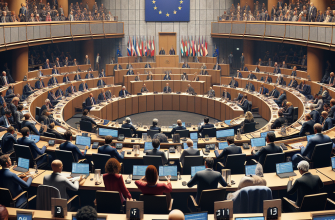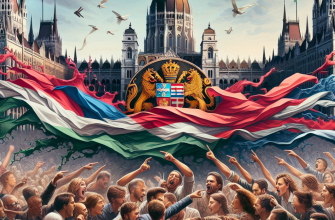- Italy’s Election Results Spark Debate on Immigration Policy
- Introduction
- Election Results and Political Landscape
- Key Election Outcomes
- Impact on Coalition Dynamics
- Immigration Policy Debates
- Current Citizenship Law and Proposed Reforms
- Far-Right Rhetoric and Policies
- Public and NGO Advocacy
- Calls for Reform
- Implications for Europe
- Consolidation of “Fortress Europe”
- Conclusion
Italy’s Election Results Spark Debate on Immigration Policy
Introduction
Druzь мои, gather around! The political cauldron in Italy has just been stirred, and the brewing debate on immigration policy is hotter than ever. The recent European elections have reshaped the Italian political landscape like a master painter mixing colors on a canvas—only instead of a sunset, we get a stormy debate over who gets to call Italy home. With Giorgia Meloni’s far-right party, Fratelli d’Italia, claiming victory, we are left pondering the implications of this seismic shift on immigration and the intricate web of Italy’s relationships with the European Union.
Election Results and Political Landscape
Key Election Outcomes
The 2024 European elections felt less like a democratic exercise and more like a dramatic play where Fratelli d’Italia strutted onto the stage, spotlight blaring, dominating the act with a thunderous 28.76% of the votes, thereby securing 24 precious seats in the European Parliament. This victory doesn’t just feel good on paper; it cements Meloni’s role as a heavyweight in both Italian and European politics. Let’s dissect the results:
- Fratelli d’Italia (ECR): 28.76% of votes, 24 seats
- Partito Democratico (S&D): 24.11% of votes, 21 seats
- Movimento Cinque Stelle (NI): 9.98% of votes, 8 seats
- Forza Italia – Noi Moderati (EPP): 9.59% of votes, 8 seats
- Lega Salvini Premier (ID): 8.98% of votes, 8 seats
Impact on Coalition Dynamics
Ah, the joy of coalition dynamics! Just when you think you have a stable government, Meloni’s Fratelli d’Italia pulls a power move, outperforming its partners: Forza Italia and Lega. This could set the stage for internal conflicts that rival the best soap operas. Will alliances strengthen or fray? Only time will tell, but you can bet your last Euro that the winds of change are blowing through the Italian political landscape.
Immigration Policy Debates
Current Citizenship Law and Proposed Reforms
Now, let’s dive into the meat of the matter—immigration. Italy’s citizenship law, an artifact from 1992, requires a solid 10 years of uninterrupted residency for folks wishing to apply for citizenship. Talk about outdated! It’s like wearing bell-bottoms when skinny jeans are all the rage. Enter the proposed “Ius Scholae” principle by Forza Italia’s deputy prime minister, Antonio Tajani. This plan aims to revolutionize the rules by granting citizenship to anyone completing 10 years of education in Italy. A noble idea, right? But hold your horses; this proposal has encountered fierce resistance from the far-right Lega and Fratelli d’Italia.
Far-Right Rhetoric and Policies
In the theater of politics, watch as leaders like Meloni and Matteo Salvini crank up the rhetoric, painting migration as a dire threat to security. During the 2024 electoral campaign, Meloni confidently touted a “naval blockade” to halt migrants from reaching Italian shores—a proposal that seems plucked from a dystopian novel rather than feasible policy. Such measures clash head-on with international and EU law, but that makes for riveting headlines at least!
- Security Decrees: Under Salvini’s reign as Deputy Prime Minister, the infamous “Security Decrees” were unleashed, transforming the landscape for asylum seekers and refugee assistance. Though some of these decrees were softened after his exit, they remain a hot potato in Italian politics.
Public and NGO Advocacy
Calls for Reform
Over at the grassroots level, organizations like Save the Children and “Italiani senza cittadinanza” (Italians Without Citizenship) are yelling for change like it’s going out of style. They argue that the citizenship law is not just outdated but downright hostile to the integration of children born to immigrant parents. Save the Children has even amassed around 100,000 signatures for their petition! As Raffaella Milano, the NGO’s head of research, wisely pointed out, the current law is a relic from a bygone era, completely disconnected from today’s societal tapestry.
Implications for Europe
Consolidation of “Fortress Europe”
As Italy tilts towards this far-right mentality, we must face a sobering reality. The country’s immigration approach, particularly under far-right flags, contributes to the tightening of Europe’s borders and the birth of what some are calling “Fortress Europe.” This notion has repercussions that echo across the Mediterranean, impacting the EU’s credibility in regions far beyond Italy, including the Middle East, North Africa, and the broader Global South.
- EU Policy Implications: The rigid immigration policies in Italy and beyond highlight the urgent need for a cohesive EU migration policy. Without one, we set ourselves up for failure, breeding double standards and a fortress mentality that jeopardizes the European Union’s global image.
Conclusion
And so, dear readers, the dust has barely settled on the 2024 European elections in Italy, but the debate over immigration policy is firing up like a Roman bonfire! The rifts within the coalition government and the overarching societal currents are telling tales of a fractured Italy. As this drama unfolds, its implications will resonate not just in Italy’s heart but throughout the European political arena. The need for a more inclusive, thoughtful approach to migration and citizenship is as clear as the sunny skies above, yet the path ahead remains shrouded in uncertainty. Buckle up, Druzь мои, this ride is far from over!









